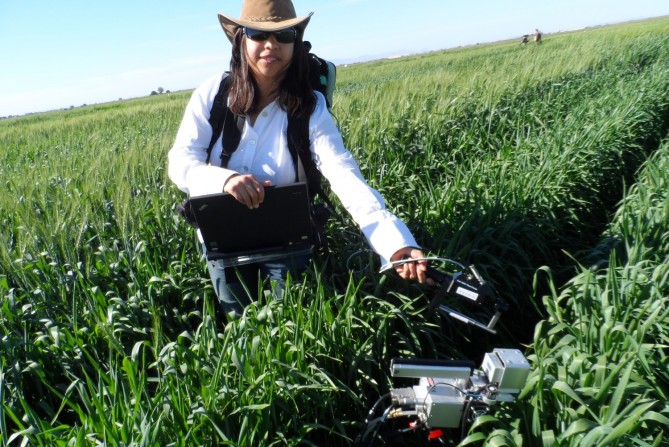RSB researchers win International Wheat Yield Partnership grant

As part of a large international effort to increase wheat yields and boost food security, researchers from the ARC Centre of Excellence for Translational Photosynthesis at The Australian National University, have received funding to map the variation for photosynthetic performance, so that breeders can use new strategies to increase wheat yield.
Wheat is one of the most important staples in the world and its demand is expected to increase by 60 percent in the following 20 years. To achieve this, novel approaches are urgently needed.
RSB Professors John Evans and Bob Furbank from the ARC Centre of Excellence for Translational Photosynthesis (CoETP) are involved in the project, which will screen wheat to establish a genetic association with photosynthetic characters.
RSB Professor Robert Furbank said that “improving photosynthesis is the next frontier in wheat breeding”.
“We hope to give wheat breeders a new toolbox of genes for yield improvement by combining new genomics tools developed in Europe, novel phenotyping technologies developed in Australia and diverse wheat varieties available from CIMMYT,” Professor Furbank said.
The project seeks to search for the genes which control how efficiently wheat uses photosynthesis to turn atmospheric carbon dioxide into grain. By matching regions of the wheat genome to photosynthetic performance, the researchers hope to enable a new revolution in breeding high yielding wheat.
The project was one of eight successful funded projects by the highly competitive grants of the International Wheat Yield Partnership (IWYP), which aims to raise the genetic yield potential of wheat. The total value of funded research is US$20 million across the eight selected projects.
The team includes researchers from the University of Liverpool in the UK, Lancaster University in the UK, the International Maize and Wheat Improvement Center in Mexico (CIMMYT) and the Australian National University.
RSB Professor John Evans said that “this project builds upon the PhD project of Viridiana Silva Perez who received funds from the Mexican government. Viri has developed a method that uses light reflected from leaves to predict a range of photosynthetic and leaf characters.”
“This new technique will enable screening of large numbers of genotypes, as it takes only a few seconds compared to the 20 minutes needed for conventional methods,” he said.
The IWY partnership has been developed by the Wheat Initiative, a product of the 2011 commitment by agriculture ministers from the G20 nations to developing an international initiative to coordinate worldwide research efforts in wheat genetics, genomics, physiology, breeding and agronomy.
- See more at: http://photosynthesis.org.au/centre-researchers-receive-grant-from-the-i...
